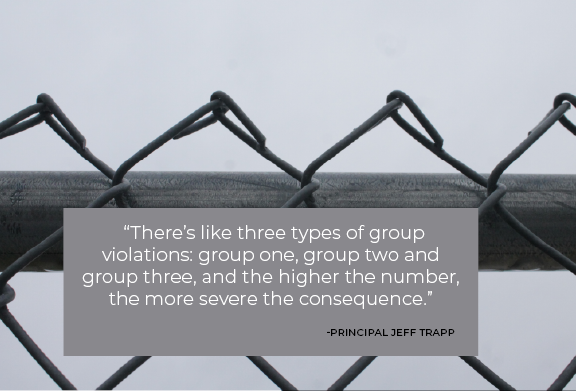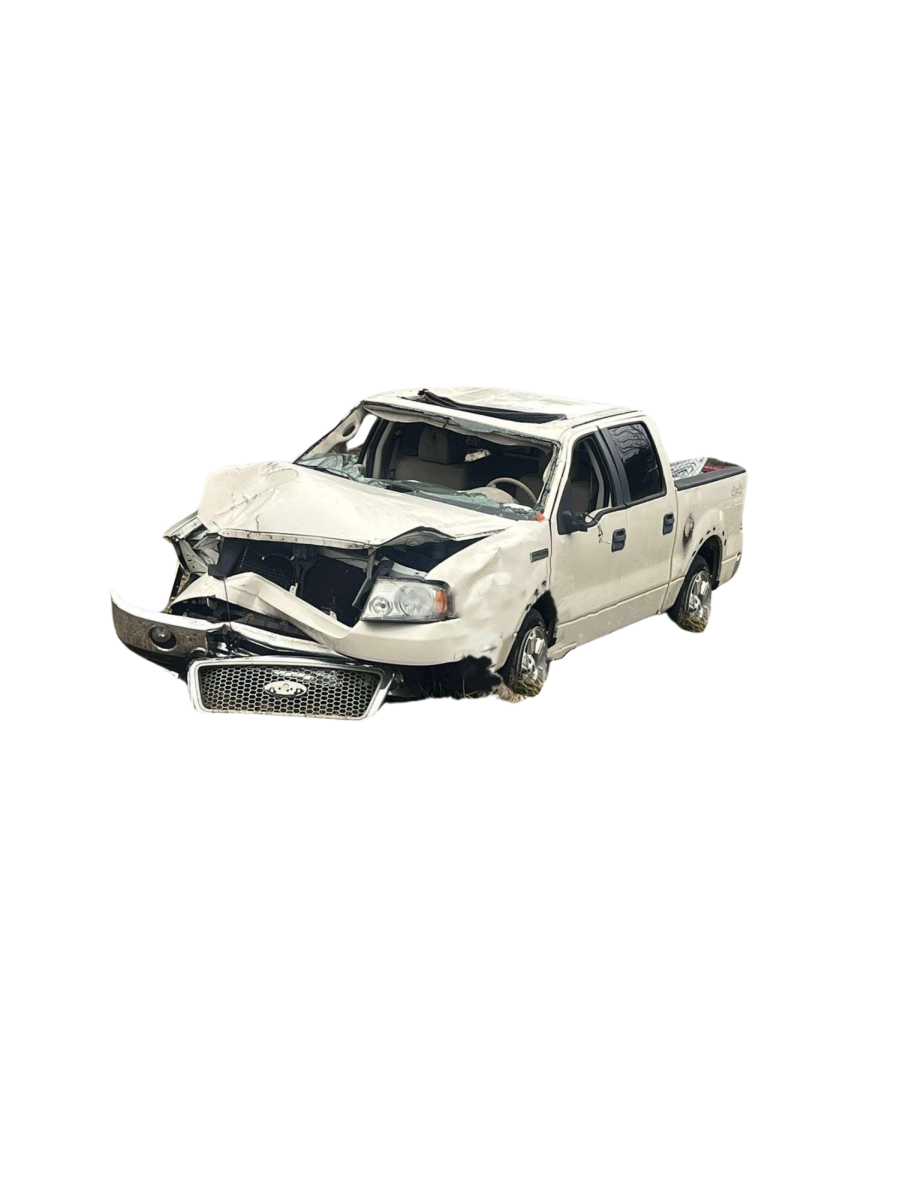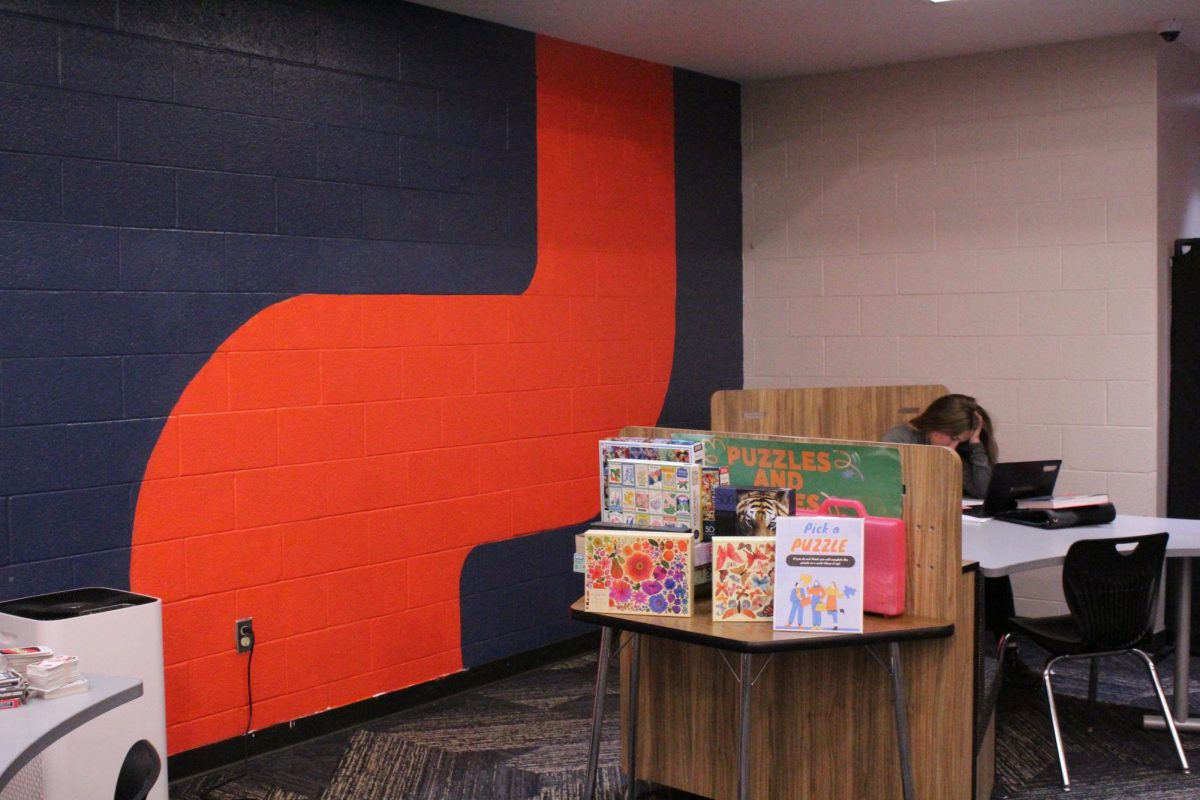Rigid school structure conditions
Teens have to ask their teachers for permission to go to the bathroom.
They can not go out into the parking lot to their cars unless they obtain not only a teacher’s permission but also the office’s permission.
If they want a quiet environment to help them focus—say the hall or a booth—they need permission for that, too.
Not much decision making is made by the student, not even those in the senior year.
“It just seems kind of silly that the teachers want us to become like these independent people because we’re at school,” junior Ivori Hufnagel said. “But yet we [get] asked these questions that were kinda’ like kindergarteners asking to do everything that we need.”
However, the student handbook states that the school rules are trying to help with employment opportunities and enforcing rules that would not be allowed in the normal work field.
The educational environment aims to teach teens in a professional environment, but misses the mark when it requires students to depend on adults for basic decision-making and permission to be independent, both qualities desired in the outside work environment.
The administration doesn’t give enough freedom to the students who are being micromanaged and it makes it really hard for them to not want to rebel. They are expected to compete for the same things and do the same things a normal work environment would but also be held down because they are needing to ask a teacher if they can work with someone else, or move around the room. On the other hand, those rules are in the student handbook to be sure that school is a safe place for everyone and if one of these more minor rules is broken the consequences are not severe.
“There’s like three types of group violations: group one, group two and group three, and the higher the number, the more severe the consequence,” principal Jeff Trapp said.
A rare few schools have worked to balance the need for discipline with an emphasis on student independence.
One school in Massachusetts does not have any teachers. Instead, they have parents or people around the town come in and watch over the students. The students establish the discipline rules and are in charge of their own learning.
Administrations and the teachers could give a little more freedom so the students can have a more independent school environment while still keeping everyone in the school safe.
“Schools need to foster independence and being able to be in charge of where you go is important, and yet there is a balancing part and that balancing part is taking the trust from parents and making sure that students are safe and okay,” social worker John Twining said.
Minors tried in adult court
On November 30, 2021, Ethan Crumbley, a 15-year-old Oxford High School student is suspected of shooting and killing four of his fellow classmates. He is being charged as an adult with terrorism, assault with the intent to murder and murder. Crumbley pleaded not guilty.
“I think [minors] should be charged depending on the severity of the crime. As an example, which just recently happened, the Oxford [shooting]. He’s being charged as an adult even though he’s only 15,” senior Kara Brown said.
In August of 2020, 17-year-old Kyle Rittenhouse killed two people and wounded one more in Kenosha, Wisconsin. He was tried as an adult and recently declared not guilty by a jury.
Approximately 4,500 adolescents are put in adult jails every day in America. Out of the 50 states, 13 of them allow minors to be tried as adults in the court of law. Michigan is one of these states.
In the United States, children are not considered legal adults until the age of 18. So why are teens being charged as adults in court at the age of 14?
According to the Davis Law Group, in Michigan, only minors over the age of 14 can be tried as adults, but in some cases, there have been children as young as 11 years old being tried in court as an adult if the offense is serious enough.
Though Crumbley and Rittenhouse were both under 18 when they committed their crimes, both were suspected of committing serious crimes. When a minor commits an egregious crime, most likely, they will automatically be tried in the adult criminal court system. These crimes include attempted murder, first degree murder, assault, arson and others.
When it comes to less serious crimes, there are more factors to take into account when deciding how to charge a minor. One of the main ones is whether or not the suspected criminal is engaging in things considered to be high risk activities or if they are participating in normal after school activities.
“[It is a] matter of whether or not they have these risk factors that we call criminogenic risk factors,” Ingham county probate judge Richard Garcia said. “These risk factors are such things as are you connected well to your school day?”
The court looks at the student’s school life, home life and mental health. This review is done to see if the incident was merely a mistake or if it is something that could reoccur.
If the court feels that the person who committed the crime could be rehabilitated, they will focus mostly on that; although, if that doesn’t seem to be working, they will be sent to prison.
The prosecutor in some cases, if they think it is necessary, can on the spot say they would like to try this child in the adult court.
That would only really be passed if the crime the adolescent did was a really poor choice on the teen’s life or the pain of another citizen.
“We look at it from the standpoint of whether you’re engaging in high risk behavior, because there are things in your life that influence you to make bad decisions,” Garcia said.










